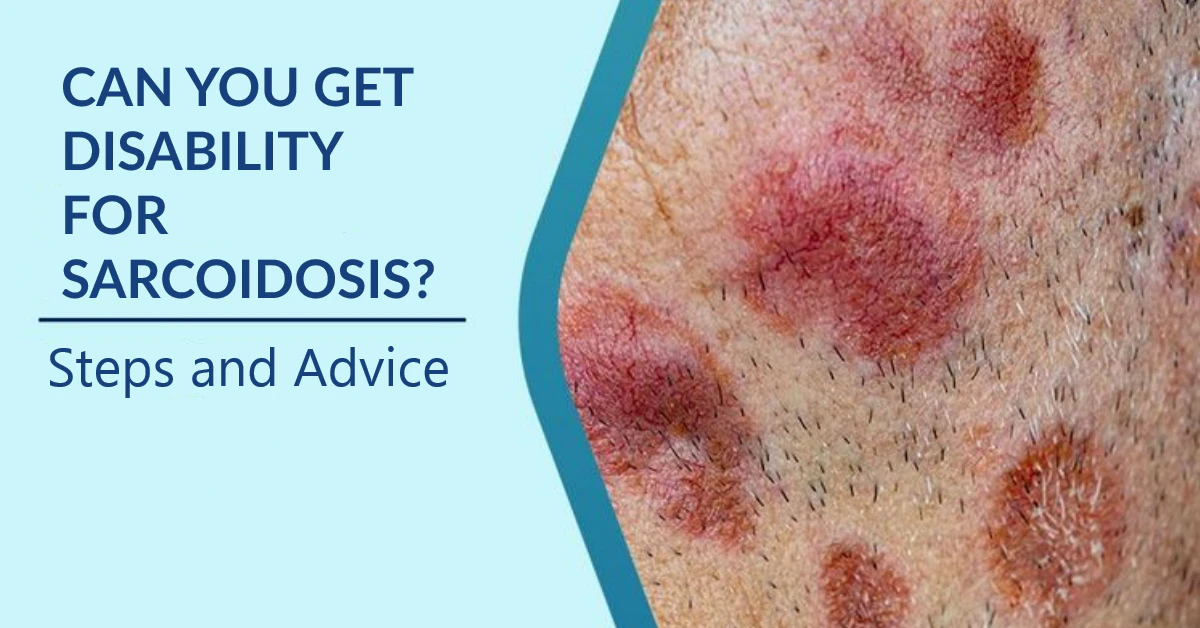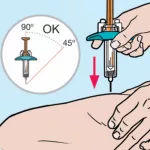Let’s not sugarcoat it: living with sarcoidosis can turn your world upside down. If you’re here, you’re probably wrestling with questions that don’t have easy answers—like, can you get disability for sarcoidosis? And if so, how in the world do you prove it? If you feel like you’re carrying a backpack full of bricks every morning (and not just metaphorically)—yeah, you’re not alone. Grab a cup of something warm, get comfy, and let’s walk through this together, step by step, with zero judgment and plenty of real talk.
Understanding Sarcoidosis and Disability: What’s Really Going On?
What Is Sarcoidosis? (Don’t Worry, This Is the Simple Version)
Sarcoidosis—just saying the word sounds complicated, right? But here’s the gist: it’s a condition where clumps of inflammatory cells (called granulomas) pop up in different organs, often the lungs, but sometimes in the eyes, skin, heart, or elsewhere. It’s like your immune system got a group text that got wildly out of hand.
Symptoms can be sneaky or just plain overwhelming—think breathlessness, chest pain, crazy fatigue, joint aches, and sometimes skin rashes. Some days you might feel “okay-ish,” but on others? Even tying your shoes feels like a marathon.
Common Symptoms and How They Mess With Everyday Life
Let’s get real: it’s not just about the medical jargon. It’s about missing your kid’s soccer game because of exhaustion, or needing help just to get groceries. Sarcoidosis can be unpredictable, which makes it even harder to explain to others—especially when you “look fine.”
Is Sarcoidosis an Autoimmune Disease?
Here’s where things get a little fuzzy. Sarcoidosis isn’t technically an autoimmune disease like rheumatoid arthritis or lupus, but it does involve your immune system acting out of line (again, that group text gone rogue). Some researchers think infections or environmental triggers might set it off, but the cause is still a bit of a medical mystery. And no, cancer isn’t an autoimmune disease, but people often ask because symptoms and treatments can overlap.
When Does Sarcoidosis Become Disabling?
Here’s the million-dollar question: when does sarcoidosis shift from “just” a chronic illness to a disabling one? For some, it’s when the shortness of breath makes work impossible. For others, it’s the relentless fatigue or the side effects of treatments. Maybe it’s the “brain fog” that refuses to clear or the pain that just won’t let up. Disability isn’t just about what shows up on a scan—it’s about how your life changes.
Real-Life Example: The Invisible Struggle
Take Mark, for instance. He worked in construction—hard hat, steel-toed boots, the whole nine yards. Then sarcoidosis hit his lungs. Suddenly, he couldn’t climb a flight of stairs, let alone a scaffold. The hardest part? People thought he was just being lazy. It wasn’t until his doctor spelled it out—his lungs were functioning at less than half of normal—that anyone really understood.
Balancing Work, Life, and Health: It’s a Juggling Act (With Dropped Balls)
Let’s be honest: sometimes you manage. Sometimes you fake it. And sometimes you just can’t. That’s not weakness—it’s reality. If you’re reading this and nodding, know that you’re not alone in this mess.
Why Getting Disability for Sarcoidosis Is (Frustratingly) Complicated
Proving disability isn’t just about being sick—it’s about showing exactly how your illness keeps you from working. And with sarcoidosis, that’s tricky, because symptoms can come and go, and not everyone’s experience looks the same. You might have to explain (over and over) why you can’t “just push through.”
How Social Security Defines Disability
In the eyes of the Social Security Administration (SSA), you’re disabled if you can’t do any kind of substantial work because of your medical condition, and it’s expected to last at least a year (or result in death—yeah, it’s grim, but that’s the rule). They’ll want proof. Lots and lots of proof.
What Counts as “Enough” Evidence?
Think: doctor’s notes, test results, hospital records, treatment histories, and even statements from people who see what you go through every day. The more detailed, the better. It’s not about exaggerating your struggles—it’s about making the invisible visible.
Can You Get Disability for Sarcoidosis? (And How to Actually Do It)
Proving Your Case: What Social Security Wants to See
If you want to get disability for sarcoidosis, you need to show, clearly and consistently, how your symptoms stop you from working. That means:
- Medical evidence (test results, doctor’s notes)
- Descriptions of your daily limitations
- Proof that you’ve followed treatment plans (or clear reasons why you haven’t)
- Statements from employers, coworkers, or family
Key Medical Evidence Needed
Bring out your inner detective. Lab tests, imaging (like chest X-rays, pulmonary function tests), and all those fun doctor’s notes—yep, keep them. If you’ve had an intrinsic factor antibody test or a workup for autoimmune small fiber neuropathy, those reports matter too, especially if your symptoms overlap.
Functional Limitations: The “Real Life” Proof
This is about how sarcoidosis affects your daily life. Can you walk a block without gasping? Can you lift groceries? Can you focus, or does brain fog leave you staring at walls? Paint a picture. The more specific, the better.
Personal Statements and Third-Party Testimonies
Sometimes, your own words—or those of people who see you every day—carry weight. A letter from your spouse about the days you can barely get out of bed? That matters. Be honest, and ask others to do the same.
How Sarcoidosis Is Evaluated by Disability Examiners
The SSA has a big, thick book (the “Blue Book”) of impairments. Sarcoidosis can fit under listings for respiratory disorders, or, if it affects other organs, under other categories. But even if you don’t “meet a listing,” you can still qualify—if you show your limitations are just as severe.
Relevant Disability Listings and How They Apply
It’s tricky, because sarcoidosis isn’t always listed by name. But if your lungs are affected, the respiratory listings apply. If it’s your heart, there’s a listing for that. If you have history of myasthenia gravis or symptoms that mimic rheumatoid arthritis (check your medical record for that diagnosis code for rheumatoid arthritis!), those can also shape your case.
Common Challenges and How to Overcome Them
The hardest part? Sometimes your symptoms don’t show up on test days. Or your specialist’s notes are too vague. Be proactive. Ask your doctors to be specific. Keep a diary of symptoms and flare-ups. Don’t leave it to chance.
The Disability Application Process—Step by Step
Let’s break it down. Here’s what you can expect:
- Apply: Online, by phone, or in person. Gather all your records first. Breathe. It’s okay to feel overwhelmed.
- Wait for Review: A disability examiner checks your medical records and may ask for more info.
- Medical Exam (Sometimes): They may send you for a consultative exam. Go, even if you’re having a “good” day. Be honest about your usual struggles.
- Decision: Approved? Celebrate, seriously. Denied? Don’t panic. You can appeal.
- Appeal (if needed): Many people win on appeal. Don’t give up.
Tips for Avoiding Common Mistakes
- Don’t downplay your symptoms. (We all do it!)
- Don’t skip appointments.
- Don’t assume the examiner understands sarcoidosis—explain everything.
When (and How) to Appeal a Denial
If you get a denial letter, don’t take it personally. Many people are denied the first time. Appeal quickly, gather more evidence, and consider getting help from a disability attorney or advocate.
Related Health Issues: Connections and Complications
Sarcoidosis and Other Autoimmune Conditions
Sarcoidosis likes to play in the same sandbox as lots of other immune system conditions. Ever heard of an autoimmune disease after cancer treatment? Or maybe you know someone with new treatments for myositis or autoimmune small fiber neuropathy. The overlap is real—and it can make your case more complicated (and, honestly, more frustrating).
Is Cancer an Autoimmune Disease?
Nope, but it’s a common question. The symptoms and treatments for cancer and autoimmune diseases can look similar, especially when it comes to fatigue, pain, or the immune system getting a little too enthusiastic. If you’ve had cancer, it’s worth mentioning, especially if your sarcoidosis appeared after treatment.
Diagnosis Codes and Lab Results: Why They Matter
If your records mention diagnosis code for rheumatoid arthritis or you’ve had an intrinsic factor antibody test to check for vitamin B12 absorption, keep those handy. They help paint a fuller picture of your health story—especially if you’ve got overlapping symptoms.
Life Insurance and Chronic Illness
“Can you get life insurance if you have Crohn’s disease?” “What about life insurance with multiple sclerosis?” Hey, these are smart questions. Chronic illnesses like sarcoidosis can make insurance trickier, but not impossible. Insurers look at your overall health, stability, and treatment history. The earlier you ask, the better your options. And yes, it is possible to get coverage—though sometimes with higher premiums or certain restrictions.
Building Your Strongest Disability Claim (And Keeping Your Sanity)
Gathering Documents and Evidence
Think of yourself as the hero in your own detective story. The more clues you gather, the better your case. Here’s a quick checklist:
| Document | Why It Matters |
|---|---|
| Medical records | Prove diagnosis, treatment, and ongoing symptoms |
| Doctor’s letters | Describe functional limitations and prognosis |
| Test results (X-rays, lab work) | Show severity and organ involvement |
| Symptom diary | Demonstrates daily challenges and flare-ups |
| Work records | Document absences, accommodations, or job loss |
Pro tip: Don’t be shy about asking your doctor to write a letter that spells out exactly how sarcoidosis affects your life. The more details, the better.
Keeping a Symptom Diary (With Example Entries)
It doesn’t have to be fancy. Just jot down how you’re feeling each day, what you could (and couldn’t) do, and any triggers you notice. For example:
- Monday: Couldn’t walk to mailbox without stopping twice. Fatigue level: 8/10.
- Tuesday: Missed work, joint pain in knees and hands. Needed help making dinner.
Getting Help from Experts
You don’t have to go it alone. Disability lawyers, patient advocates, and support groups can make all the difference. If you’re feeling lost, reach out. Sometimes just talking it out with someone who “gets it” is a game changer.
Your care team matters, too. Ask your doctors to be specific in their notes—and don’t be afraid to push for clarity. This is your life, after all.
Real-Life Stories and Lessons Learned
I once spoke with a woman named Julia, who fought for two years before finally getting her disability for sarcoidosis approved. She said the turning point was keeping a detailed journal, and finding a doctor who really listened. Her advice? “Don’t give up. Your experience is valid, even if it’s invisible to others.”
What about you? If you have a story—or even a question—don’t be shy. Sharing helps everyone.
Risks, Benefits, and What to Consider
Pros and Cons of Applying for Disability with Sarcoidosis
It’s a tough road, no lie. On the plus side, disability benefits can give you breathing room—literally and figuratively—so you can focus on your health. On the downside, the process can be long, stressful, and sometimes demoralizing. There’s also the emotional toll: identity, finances, relationships. It’s okay to grieve what you’ve lost, even as you fight for what you need.
Navigating Social Stigma and Personal Identity
If you’ve ever felt “less than” because of your illness, you’re not alone. But your worth isn’t tied to your productivity. You’re still you—bold, brave, and deserving of support.
What If You’re Denied? Next Steps and Resources
First off: don’t panic. Denials happen all the time. Appeal, gather more evidence, and consider legal support. And lean on your community—support groups (online or local) can be a lifeline. Remember, you’re not a failure for needing help. You’re a fighter for asking for it.
Conclusion: You Deserve to Be Heard (And Helped)
Here’s the bottom line, friend: sarcoidosis can be invisible, but your struggle is real. If you’re asking, “Can you get disability for sarcoidosis?”—the answer is yes, but you’ll need grit, documentation, and support. You don’t have to do it all alone. There are people (and resources) ready to help you every step of the way. If you’re feeling overwhelmed, take a breath—one step at a time is enough.
And hey, if you’ve made it this far, you’re already stronger than you think. If you’ve got questions, stories, or just want to vent—reach out. Your experience matters. And you’re not alone, not now, not ever.

























Leave a Reply
You must be logged in to post a comment.